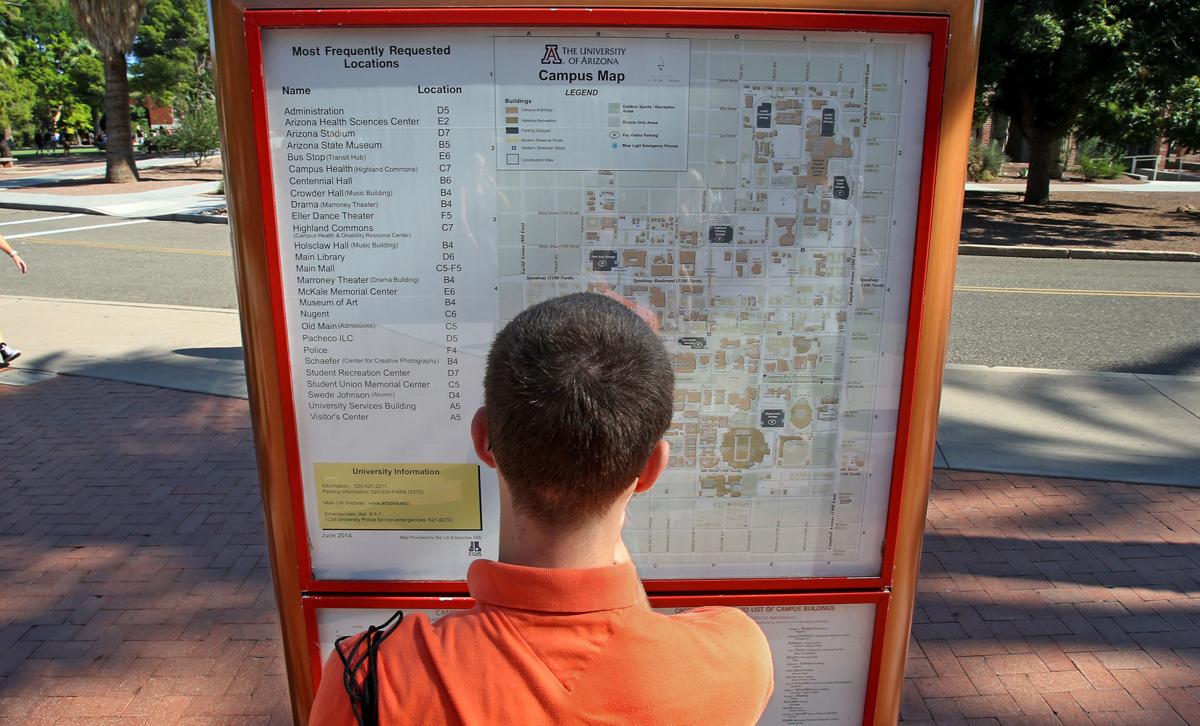The lawsuit by Attorney General Mark Brnovich against the Board of Regents over the cost of tuition is another example of the state essentially suing itself on the whim of a few, with taxpayers footing the bill for political wrangling.
There is no denying that attending a four-year college in Arizona is ever more expensive, but the conceit that the state’s universities, and by extension the governor-appointed Board of Regents, are solely responsible for this is ludicrous.
Any attempt to come to terms with the high cost of college should include holding the Arizona Legislature accountable for its role in defunding the universities.
Tuition costs have skyrocketed over the last 15 years, up 370 percent at the University of Arizona, and far from the state constitutional requirement that instruction “shall be as nearly free as possible.”
This, in part, is what Brnovich said led him to sue.
For 2017-2018, base tuition and fees for in-state students total $12,228 at the UA, $11,059 at NAU and $10,792 at ASU, for an average of $11,360.
In the complaint filed on Friday, Brnovich also takes the Board of Regents, which oversees the public university system, to task over charging part-time and online students more than full-time traditional students, as well as requiring the payment of fees — including for athletics, recreation and technology — that have nothing to do with education. He also charges the board with illegally giving in-state tuition to recipients of the Deferred Action for Childhood Arrivals program.
DACA students — immigrants brought into the country illegally when they were children but protected from deportation through a presidential order — were granted in-state tuition by the board in 2015 after a judge found that the Maricopa Community College system’s similar policy was not violating state law.
That decision was overturned earlier this year by the state Court of Appeals, but the Board of Regents said it would not take any action until the Arizona Supreme Court weighed in.
The attorney general was pushed to act by former state Senate President Russell Pearce, who said he would sue the board if Brnovich didn’t.
While it was widely believed in-state tuition for DACA recipients would be challenged, the expansion to include how tuition is set came out of the blue, said Regents Chair Bill Ridenour in an interview.
“We have all kinds of costs and figures and statistics and we work hard on this,” he said. “If anyone wants to delve into the issue all they have to do is sit down and talk with us, and we’ll provide them all the information necessary.”
It’s also on the regents’ website.
The board’s options now include answering the complaint, filing a motion to dismiss or trying to get the Legislature involved in the suit, Ridenour said.
Any response to the suit should highlight how 10 years ago the state funded about 75 percent of the cost for an in-state student, while this year the figure is closer to 34 percent.
In 2016, the average cost to educate a student was $15,550. Resident tuition and fees provide $6,584 toward that cost and state support allocates $5,335 to offset the cost. That leaves a loss of $3,631 for each student, according to the Board of Regents.
“Either the state pays for this or the students,” Ridenour said. “How can you have that discussion if you don’t have the governor and his office, the Legislature involved? The costs of education revolve around all of those.”
Although any system, especially one as large as Arizona’s public universities, may have questionable expenses that should be addressed, it is disingenuous to look at two graphs — one showing reduced public spending and the other increased tuition — and not see a correlation.
Compromise and a commitment to funding public education are the best ways to find a solution to control tuition costs, but if the attorney general is in the mood to sue, he should not stop at the Board of Regents.





